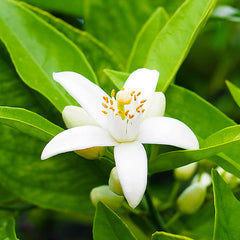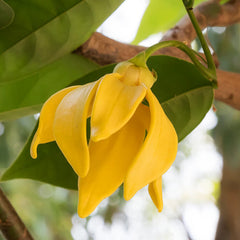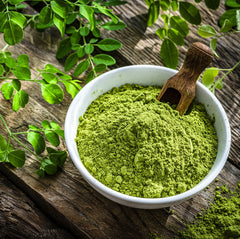Why Are Aromatic Perfumes Called Aromatic?
Click For Affordable Inspired Perfume Alternatives
Perfumes have been an integral part of human culture for thousands of years, serving as symbols of status, romance, and personal expression. Among the many types of fragrances, aromatic perfumes hold a special place due to their rich, complex, and pleasing scent profiles. But have you ever wondered why these fragrances are called "aromatic"? The term "aromatic" is deeply rooted in the history, composition, and sensory impact of these perfumes. Understanding the origin of this name offers a fascinating glimpse into the art and science of perfumery, revealing why aromatic perfumes continue to captivate and allure people around the world.
Why Are Aromatic Perfumes Called Aromatic?
The term "aromatic" in relation to perfumes originates from the word "aroma," which refers to a distinctive, often pleasant smell or odor. Aromatic perfumes are called so because they are primarily composed of aromatic compounds—substances that produce a fragrant scent through their chemical properties. These fragrances are characterized by their fresh, herbal, spicy, and sometimes woody or citrusy notes that evoke a sense of freshness and vitality. The name "aromatic" essentially highlights the fragrances' ability to stimulate the olfactory senses with a pleasant and evocative scent profile, often associated with nature and natural ingredients.
The Origins of the Term "Aromatic"
The word "aromatic" has its roots in the Latin word "aromaticus," which is derived from the Greek "aromatikos," meaning "spicy" or "fragrant." Historically, the term was used to describe herbs, spices, and plants known for their pleasing smells. The ancient civilizations of Egypt, Greece, and Rome heavily relied on aromatic herbs and resins for both medicinal and perfumery purposes. These early cultures recognized the unique qualities of certain plants and their essential oils, which produced distinctive scents that could evoke emotions, provide healing, or serve as offerings in religious rituals.
As perfumery evolved over centuries, the term "aromatic" came to describe specific fragrances that emphasized fresh, herbal, and spice-like qualities. The classification of perfumes based on scent families—such as floral, woody, oriental, and aromatic—helped perfumers create and categorize fragrances, with "aromatic" often signifying a vibrant, lively scent profile rooted in natural plant extracts.
What Makes a Perfume Aromatic?
Understanding why a perfume is labeled "aromatic" requires a closer look at its ingredients and scent composition. Aromatic perfumes are typically characterized by the following features:
- Use of Aromatic Herbs and Spices: Ingredients like basil, thyme, rosemary, sage, lavender, and coriander are common in aromatic perfumes. These herbs contribute fresh, green, and spicy notes that define the aromatic profile.
- Essential Oils and Extracts: The dominant aspect of aromatic perfumes is the use of essential oils derived from natural sources. These oils capture the essence of plants and herbs, making the scent rich and authentic.
- Fresh and Vibrant Notes: Aromatic fragrances often evoke feelings of energy, freshness, and vitality. They are designed to be uplifting and invigorating.
- Complex Blends: While simple herbal scents can be aromatic, traditional aromatic perfumes are complex blends that balance spicy, herbal, citrusy, and sometimes woody notes to create depth and sophistication.
These characteristics set aromatic perfumes apart from other scent families, such as floral or oriental fragrances, which may focus more on sweet, powdery, or rich exotic notes. The emphasis on natural, green, and spicy elements is what gives aromatic perfumes their distinctive identity and name.
The Chemistry Behind Aromatic Perfumes
The aromatic quality of a perfume is largely due to the chemical compounds present in its ingredients. These compounds can be classified as:
- Terpenes: Organic hydrocarbons found in many herbs and spices, responsible for their characteristic scents.
- Phenols: Compounds like eugenol (clove oil) that add spicy and warm notes.
- Alcohols and Esters: Used to stabilize and blend aromatic oils, enhancing their scent and longevity.
- Essential Oils: Concentrated extracts that contain a complex mixture of aromatic compounds, derived from plants.
These chemical constituents interact with our olfactory receptors to produce the perception of "aromatic." The art of perfumery involves balancing these compounds to create a harmonious and appealing scent that resonates with the natural qualities associated with "aroma."
The Cultural Significance of Aromatic Perfumes
Throughout history, aromatic perfumes have played an essential role in cultural rituals, social interactions, and personal grooming. The use of aromatic herbs and fragrances dates back to ancient civilizations, where they were valued not only for their scent but also for their perceived healing and spiritual properties.
In many cultures, aromatic perfumes are associated with cleanliness, vitality, and spiritual purity. For example:
- Ancient Egyptians used aromatic resins like frankincense and myrrh in religious ceremonies and embalming practices.
- Greek and Roman civilizations crafted aromatic ointments and perfumes to enhance personal allure and social status.
- In traditional Indian and Middle Eastern cultures, aromatic herbs and spices are integral to daily life, Ayurveda, and religious practices.
Today, aromatic perfumes continue to evoke these historical associations, offering a connection to nature, tradition, and cultural heritage. They appeal to individuals seeking fragrances that are lively, natural, and invigorating.
The Popularity and Modern Appeal of Aromatic Perfumes
In contemporary perfumery, aromatic fragrances are appreciated for their versatility and refreshing qualities. They appeal to a wide audience, from those who prefer casual, everyday scents to connoisseurs seeking complex and sophisticated blends. The popularity of aromatic perfumes can be attributed to several factors:
- Freshness and Energy: Aromatic perfumes are often perceived as uplifting and energizing, making them suitable for daily wear and active lifestyles.
- Natural Vibe: With increasing awareness of natural ingredients, consumers are drawn to the herbal and green notes characteristic of aromatic fragrances.
- Versatility: Aromatic scents blend well with other fragrance families, making them adaptable and suitable for various occasions.
- Timeless Appeal: Classic aromatic fragrances, such as fougère and herbal compositions, have stood the test of time, maintaining their popularity across generations.
Major perfume houses continue to innovate within the aromatic category, creating new interpretations that emphasize sustainability, natural ingredients, and unique blends that keep the aroma fresh and relevant.
Conclusion: The Enduring Charm of Aromatic Perfumes
In essence, aromatic perfumes are called so because they encapsulate the essence of "aroma"—a term rooted in the rich history of fragrant plants, herbs, and spices. Their defining features—freshness, herbal qualities, and spicy notes—are a tribute to the natural world and its bounty of fragrant treasures. The use of aromatic compounds in perfumes not only delights the senses but also carries cultural, historical, and scientific significance.
From ancient rituals to modern-day fashion, aromatic perfumes continue to symbolize vitality, freshness, and a deep connection to nature. Whether worn casually or as a statement of personal style, their name aptly describes their core characteristic: the captivating, invigorating, and timeless appeal of aroma. As we continue to explore and innovate within this fragrance family, the term "aromatic" remains a fitting tribute to the fragrant wonders crafted by perfumers worldwide, offering a sensory experience that is both uplifting and enduring.
Buy Perfumes - Best Online Retailers
Click For Affordable Inspired Perfume Alternatives
Click For The Best Niche Perfumes & Decants
Pheromone Perfumes - Confidence, Attraction & Appeal - Click For More
Home Fragrances & Candle Warmers - Click To Scent Up Your Spaces Today!



